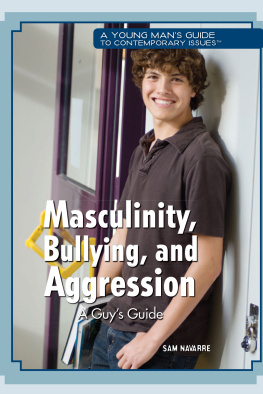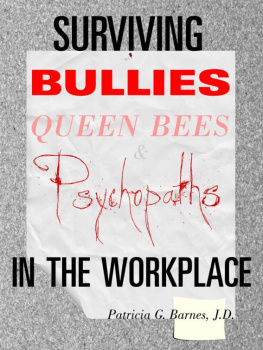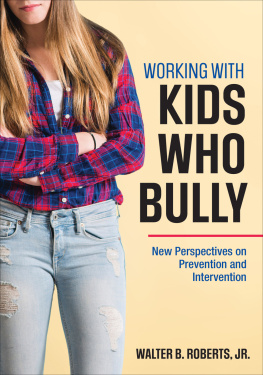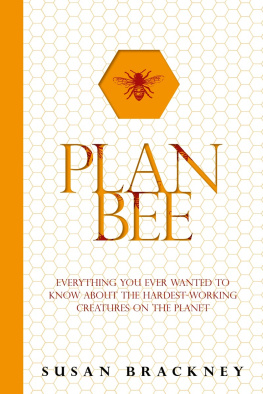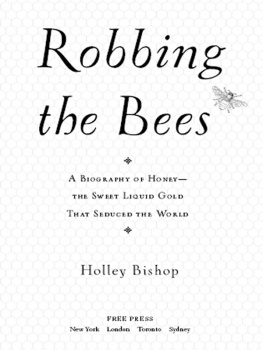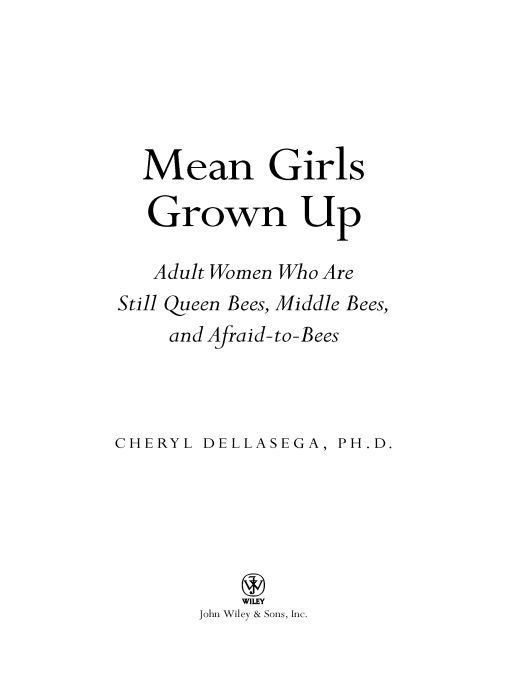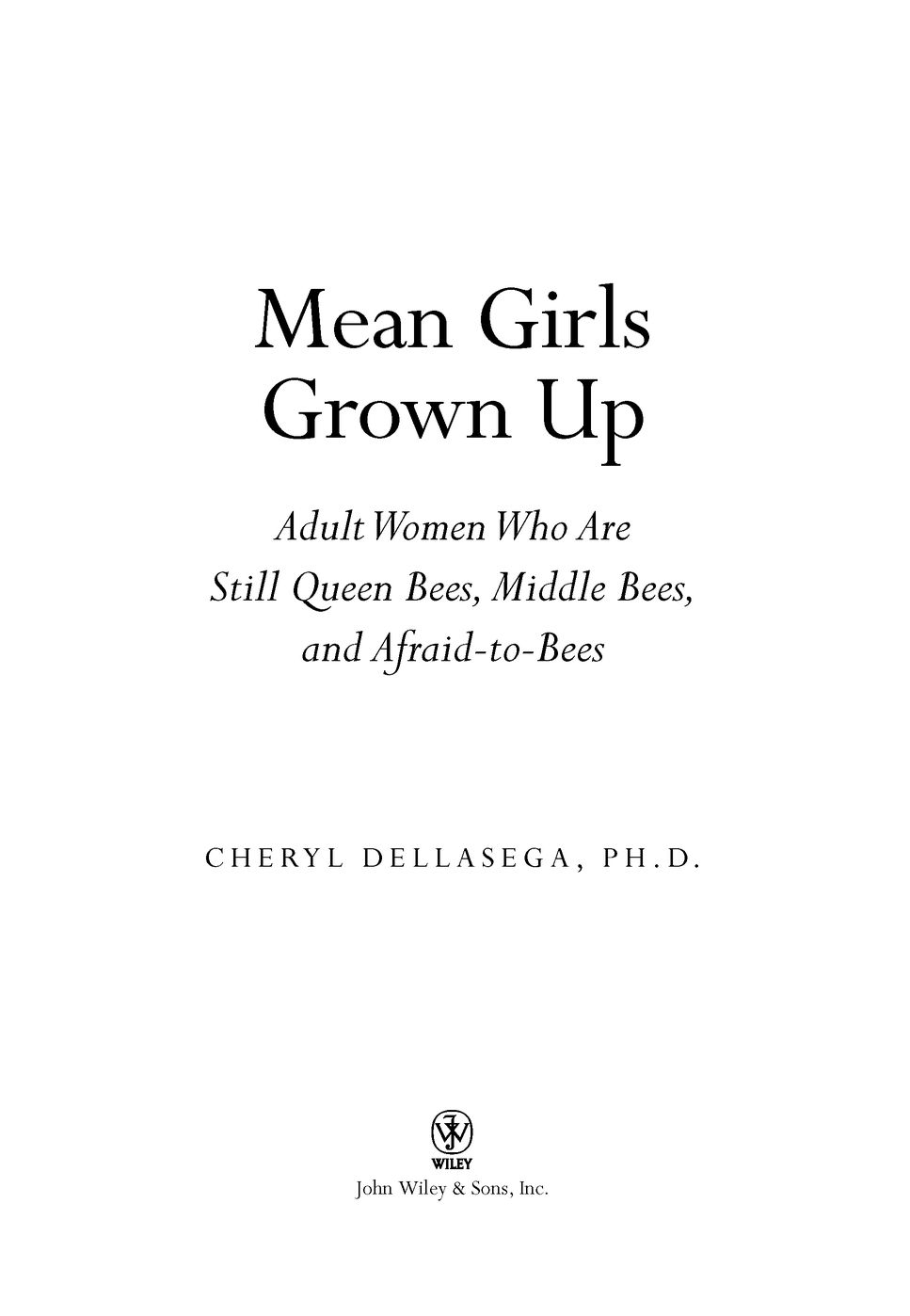Table of Contents
Also by Cheryl Dellasega, Ph.D.
Surviving Ophelia: Mothers Share Their Wisdom
of the Tumultuous Teen Years
Girl Wars: Twelve Strategies That Will End Female Bullying
The Starving Family: Caregiving Mothers and Fathers
Share Their Eating Disorder Wisdom
Id like to dedicate this book to my mother,
Peg Miller,
who long ago showed me the benefit of connections
between womeneven those who are not friends.
These connections are too powerful to be
undermined, ignored, or suppressed, and Im
convinced every woman needs them.
Acknowledgments
I wrote this book not only as a follow-up to Girl Wars, but because of female friends and colleagues who have been un-relationally aggressive and supportive over the years. It seems important to look at what goes right in relationships as well as what can go wrong. To Susan, Beth, Maureen, Shelba, Pat, Stacy, Sherry, Adria, Kathleen, Monica, Robin, Lisa, Gail, Barb, and many, many more: thank you! And to Teryn Johnson, a patient and positive editor who weathered the storms of this book with me, much gratitude.
Introduction
When I was eight, my mother gathered with other women to sit in the courtyard of our apartment complex. All summer, after her housework was completed, she would be there, in the center of a cluster of aluminum chairs, gathered with friends to drink ice tea and smoke cigarettes while all the children played nearby. There is a black-and-white picture of the group somewherethey have haircuts and clothes that have gone out of style and come back in, and they are smiling and happy, just as I remember them.
As our family moved on and lived in other places, a constant of my childhood was my mothers friends and female acquaintances. There was always a diverse crowd of women in her life, ready to help celebrate holidays, mourn tragedies, or just talk about the events of an ordinary day. I cant recall my mother ever being mean to another woman, having a serious disagreement with one of her friends, or ending a relationship due to a dispute. She has had friends for decades: Bev, Evelyn, Gertrude, Joyce, Jane, Ingrid, Irenethe list is long. When my dad retired, these women made a quilt for my mom out of squares they each created; it was king-size and took a lot of effort.
Its no surprise that like my mother, I rely on and value my female friends, both the lifelong ones and those I know only through the Internet. Im continually grateful for women who come into my life unexpectedly and give me the gift of themselves (like my neighbor Lisa Plotkin, who volunteered to read and critique this entire manuscript while she nursed her newborn son).
Then there are women I dread to be near, who sometimes seem as plentiful as the women I cherish. They are the ones who are stuck in that middle school bee behavior: the Queen Bee bullies (a particularly memorable one buzzed furiously around me on my first job, as if she actually was protecting her hive from intruders); the Middle Bees, who spread gossip or stand by as others do so; and Afraid-to-Bee victims, who retreat into passivity. Encounters with any of these women are painful reminders of the teen years, when female bullying is at its peak and mean girls dont hesitate to use words, gestures, or behaviors to wound another. Women who get stuck in these roles are still involved in the same harmful dynamic years later: Queen Bees bully their way to the top, Middle Bees serve as the go-betweens, and Afraid-to-Bee victims are targeted for aggression. It isnt confined to the work setting, either. These situations play out in virtually any place where women gathereven online.
Like many women, I have found myself playing each of the bee roles. There have been times when I responded to a threat with aggression, got caught up in a gossip fest that was downright malicious, or withdrew from another woman in frightened silence. Until I wrote a book for adolescent girls, I didnt realize there was a name for those behaviors: relational aggression (RA or female bullying).
During interviews and talks about that book, I was asked again and again if RA stops after high school. Many of the men and women who posed that question already had their own answers, as did I. When I searched through existing literature for confirmation, I found no in-depth discussion of RA in adult women. There were books on nasty bosses and some on hostile women, but I had a sense that the scope and magnitude of RA extended well beyond the workplace and often involved more than one bully and one victim.
Are there midlife mean bees? Do grown women gossip and campaign against other women in an attempt to bring them down? Are there cliques in the corporate lunchroom as well as the car pool? Can older women be as two-faced and competitive as their younger counterparts? As I talked to womenthe true experts on these behaviorstheir resounding response was, yes!
Consider what these women have to say:
Yes, other women definitely look down on me because Im a stay-at-home mom and didnt even leave a successful career to take care of my family. When we go to a party or someplace where there are adults of both genders, men are more likely to accept me as a stay-at-home mom than other women.
Tanya, age thirty-two, mother of two young children
I swam competitively in high school, but it was cake compared to my experience with the group of women I worked out with not too long ago. Guys dont like it when Im faster than them, but these women were worse, acting offended to share a lane with me and making rude comments about my body or the length of my workouts. At this point, I swim for fun, not to compete, so I dropped out and decided Im better off exercising alone.
Barb, age twenty-nine
Its like playing a game of cards, only your kids help you win. Everyone is out to trump everyone else with some new accomplishment of her son or daughter.
Tessa, age twenty-six, part of a mothers organization
The jealousy among the women here is unbelievable. They watch each new person who moves in to see if he or she might own something valuable, and the gossip is incredible. The men do their own thing, but the women notice and comment on everything!
Sasha, age seventy, who lives in a retirement center
The pages that follow contain stories from women around the world who encountered mean girls grown up and have something to say about it. I obtained these stories in a variety of ways: through ads for submissions in writing magazines, womens publications, and Web sites; fliers sent to conferences; and word-of-mouth. This book contains a sampling of the best pieces I received. Some of the women who wrote were Queen Bee bullies and others were Afraid-to-Bee victims who had suffered through months, years, or a lifetime of abuse. Middle Bee women, those who had found themselves in between the aggressor and her target in one way or another, also shared their experiences.
Other parts of the book contain material from women who were interviewed to obtain input on how aggression plays out in specific groups, such as the very young or old and those from ethnically diverse backgrounds. Experts who have helped women overcome the impact of aggression in one way or another contributed as well.
Where details of a story would be damaging to an individual who could be identified, the story was edited to preserve the content but protect confidentiality. Contributors had the choice of using their real name or a pen name. If you want to contact any of the contributors or experts, e-mail me at opheliasmother@aol.com.


